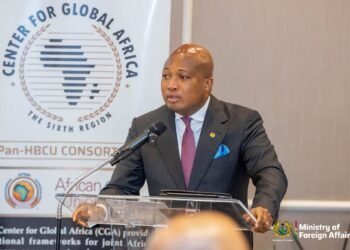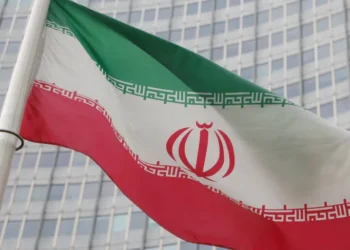Kenya’s President William Ruto says the country is on track to sign a bilateral trade agreement with the United States before the end of 2025, while also pressing Washington to extend the African Growth Opportunity Act (AGOA) for at least five more years.
Speaking on the sidelines of the United Nations General Assembly in New York, Ruto confirmed that he will be meeting U.S. Secretary of State Marco Rubio to lobby for the continuation of the duty-free trade pact, which has been a vital economic bridge between Africa and America for the past quarter century.
“I will be asking him for the U.S. to consider seriously renewing and extending AGOA for at least a minimum of five years, because it is a platform that connects Africa and the U.S. in a very fundamental way, and it can go a long way in solving some of the trade deficits and challenges that exist at the moment.”
President William Ruto
The African Growth Opportunity Act, first enacted in 2000, grants duty-free access to U.S. markets for qualifying African nations. However, the legislation is due to expire this month, creating uncertainty for exporters and raising concerns among African leaders.
Ruto expressed confidence that the U.S. administration has grown more receptive to the importance of AGOA. “AGOA gives both Africa and the U.S. the best chance to expand and deepen trade,” he added.
Talks On Bilateral Trade Deal Progressing
While negotiations on AGOA continue, Ruto highlighted that Kenya and the U.S. have made “good progress” on a bilateral trade deal, which he expects to finalize by year-end. The deal would be the first of its kind between Washington and a sub-Saharan African nation.
The talks come amid heightened trade tensions after President Donald Trump, who returned to the White House in January, introduced a 10% tariff on Kenyan goods in April. Trump’s tariff-driven trade policy has cast doubts over AGOA’s future.
Kenya is keen to expand its exports to the U.S. beyond traditional staples such as tea, coffee, and avocados, to include apparel, textiles, mining, and fishing. For Ruto, broadening this access is central to achieving long-term trade balance.
Kenya has also built strong trade ties with other partners, notably China, which recently removed tariffs on all agricultural imports from the East African country. Ruto acknowledged that while Nairobi runs a trade deficit with Beijing, its trade with Washington remains relatively balanced. “We have a trade deficit in favor of China, but the one for the U.S. is fairly balanced, so we are still looking at avenues on how to balance trade with all our trading partners,” he explained.
Security Concerns In DRC And Haiti
Beyond trade, Ruto’s discussions at the UN General Assembly also touched on security challenges in Africa and the Caribbean. On the crisis in eastern Democratic Republic of the Congo, he revealed that a joint proposal has been put forward for the U.S., Qatar, the East African Community, and the Southern African Development Community to meet next month to chart a path forward.
The comments follow a statement by DRC President Felix Tshisekedi earlier this week that a U.S.-mediated peace deal signed with Rwanda in June had failed to quell fighting in the mineral-rich region.
Concerning Haiti, Ruto reiterated Kenya’s commitment to leading the international force mandated to stabilize the gang-ravaged nation but warned that the mission remained dangerously under-supported.
“We need more numbers,” he said. “We need more logistics, we need more equipment, and we need more financial support to be able to carry this through.”
Armed gangs have overrun nearly all of Port-au-Prince, displacing around 1.3 million people and pushing many into famine-like conditions. Ruto’s appeal underscores the growing frustration over the limited global backing for the intervention.
With trade and security both dominating his agenda, Ruto is positioning Kenya as a key partner to Washington, balancing economic ambitions with international peacekeeping commitments.
READ ALSO: World Bank Sounds Alarm: Ghana Must Restore Fiscal Discipline or Risk Endless IMF Bailouts


















